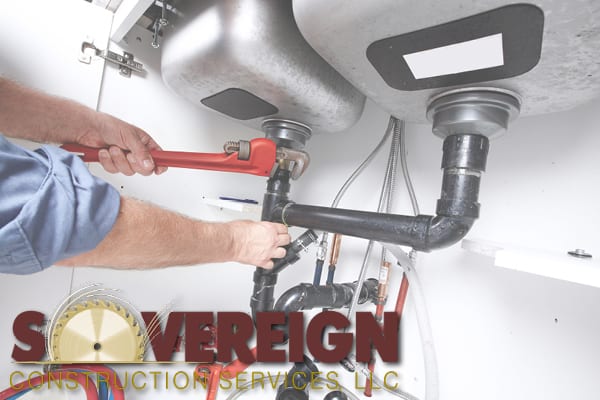What is hard water?
Water that contains high concentrations of minerals such as calcium and magnesium is considered hard. These minerals can gradually build up in fixtures and appliances, causing deposits in plumbing pipes all throughout the house. These deposits can lead to dingy, scratchy clothes from the washing machine and itchy skin and dull hair after a shower. Fortunately, hard water is not at all harmful for drinking or bathing.
How does hard water affect fixtures?
Scale buildup occurs in supply pipes over time, causing a variety of issues, including an eventual restriction of water flow. This can be a huge problem for any water-dependent appliance or plumbing fixture, as a restriction of water can negatively affect the efficiency and proper operation of these items. Below we list some of the issues hard water creates.
- Water Heaters – Excessive scale buildup on the bottom of a water heater can act as insulation, reducing the heater’s efficiency and requiring the unit to run longer to properly heat to a desired temperature. The lifespan of a water heater is reduced, requiring more frequent replacement. (To combat this problem, hire a professional to flush the water heater every other year.)
- Toilets – Holes in the toilet rim allow water to flow when flushed. The toilet bowl will not fill properly if these holes become clogged by scale buildup and there will not be sufficient water for a complete flush. No one likes using a plunger!
- Sinks and Tubs – Kitchen, bathroom sinks, and bathtubs will develop a visible hardness buildup at the drain and at the mesh of the faucet where the water comes out. Over time, buildup prevents good water flow. Shower doors, tiles, and tub sides will develop a hard-to-remove scum.
- Dishwashers – White residue accumulates inside a dishwasher, making its presence known on both the dishwasher racks and the dishes you’re trying to clean. Thorough dish cleaning is practically impossible. You will need to either solve the hard water problem or use a specialty detergent for each load.
- Washing Machines – Hard water deposits can clog up a washing machine by blocking fill screens and the fill valve where the hot and cold water lines connect (behind the machine). This results in a need for higher washing temperature and a greater amount of detergent for good cleaning.
- Refrigerators – Preinstalled water filters remove some mineral deposits, but over time or without regular changing, filters become ineffective. The ice maker and water dispenser will show signs of hard water buildup. Low flow, cloudy ice and water, a bad taste, and crust at the base of the water dispenser are signs of a hard water problem.
How do I solve my hard water problem?
The best way to solve a hard water problem is to install a water softener system. These systems work by altering the concentration of calcium and magnesium in the water supply – essentially acting like a filter that uses special salt (or potassium) to regenerate minerals into soft water.
There are three basic components to a water softener: a mineral tank where filtration takes place, a brine tank containing a highly concentrated salt solution, and a control valve that manages the flow into and out of the brine and mineral tanks. Once a system is installed, the homeowner supplies the salt. And, voila! Cleaner dishes, softer clothes, shinier hair, and sparkly showers result – making life not so “hard.”
If you are suffering the effects of hard water, you can contact a reliable specialist who will recommend the best solution for your situation. Steve Rush, owner of Sovereign Construction Services, can guide you in this process. Call him at 610-639-2986. He will be glad to explain the options available to you so you can make the best decision for your needs.

